GABA
How to submit an article:
- Registered users can submit any published journal article that has a unique DOI (Digital Object Identifier) name or link to Research Hub.
- For example, you can paste the full DOI link:
https://doi.org/10.1109/5.771073or just the DOI name:10.1109/5.771073into the field above and click submit. - The person who is first to submit a valid article to Research Hub will forever be credited for it, and every article submission earns you +6 Research Points.
Also known as: Gamma-Aminobutyric Acid
Related Topics
Published research studies are articles that present the findings of original research that has undergone a peer-review process and has been made publicly available in scholarly journals, books or other media.

Combined Effects of Ziziphus jujuba, Dimocarpus longan, and Lactuca sativa on Sleep-Related Behaviors through GABAergic Signaling
2023 Dec 19 Foods Bae GY, Ko K, Yang E, Park SS, Suh HJ, Hong KB
Experimental Study Animal Study Longan GABAA blend of jujube seeds, longan fruits, and lettuce leaves significantly increases sleep time in fruit flies and mice.
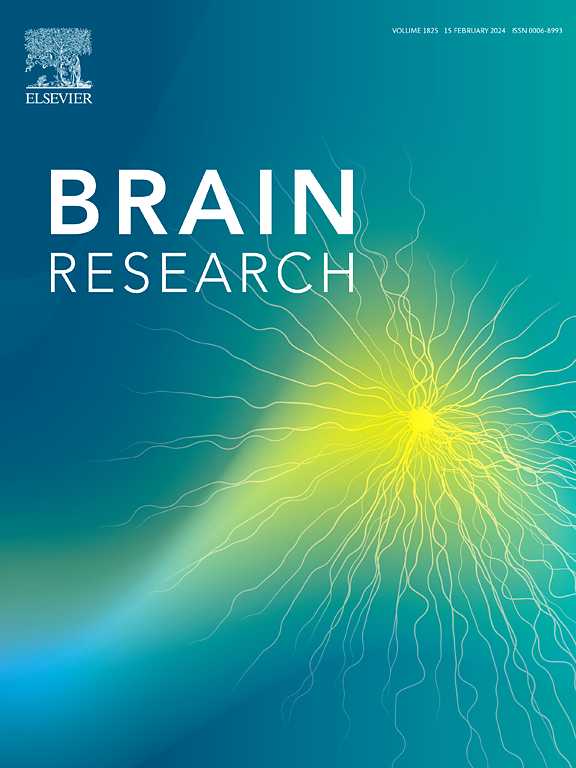
Pomegranate (Punica granatum L.) and its phytochemicals as anxiolytic; an underreported effect with therapeutic potential: A systematic review
2023 Dec Brain Research Flores-Bazán T, Betanzos-Cabrera G, Guerrero-Solano JA, Negrete-Díaz JV, German-Ponciano LJ, Olivo-Ramírez D
Systematic Review Anxiety PomegranatePomegranate fruit and its phytochemicals may offer a novel, natural alternative for the treatment of pathological anxiety, with fewer adverse effects than traditional medications.

Sleep-Enhancing Effect of Water Extract from Jujube (Zizyphus jujuba Mill.) Seeds Fermented by Lactobacillus brevis L32
2023 Jul 27 Foods Bae GY, Ahn Y, Hong KB, Jung EJ, Suh HJ, Jo K
Experimental Study GABA Suan Zao Ren Jujube SleepThe fermented jujube seeds extract significantly enhances sleep by binding to the GABA receptors, thus offers a promising natural alternative for sleep disorders treatment.
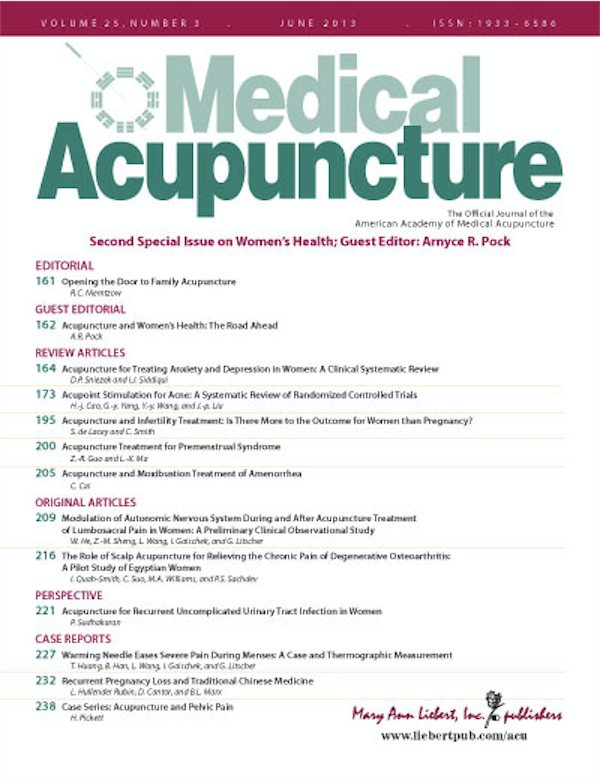
Effects of Acupuncture Therapy on Drug-Resistant Fibromyalgia: An Exploratory Single-Arm Nonrandomized Trial
2022 Jun 01 Medical Acupuncture Minakawa Y, Saito S, Matsumoto Y, Oka H, Miki K, Yukioka M, et al.
The combination of conventional electroacupuncture plus electro-scalp acupuncture effectively alleviated pain, improved quality of life (QOL), and led to a reduction in pregabalin dosage requirements in patients with fibromyalgia.
Randomised Controlled Trial Fibromyalgia
Comparison between acupuncture therapy and gabapentin for chronic pain: a pilot study
2021 Jul 29 Acupuncture in Medicine Chen L, Deng H, Houle T, Zhang Y, Ahmed S, Zhang W, et al.
This pilot study suggests that a large-scale clinical study with an adequate sample size would be warranted to compare acupuncture and medication therapy for chronic pain management.
Randomised Controlled Trial GabapentinResearch insights are moderated by the Research Hub team and offer an at-a-glance overview of interesting research findings.

2023 Foods
A blend of jujube seeds, longan fruits, and lettuce leaves significantly increases sleep time in fruit flies and mice.
Experimental Study Longan
Combined Effects of Ziziphus jujuba, Dimocarpus longan, and Lactuca sativa on Sleep-Related Behaviors through GABAergic Signaling
Bae GY, Ko K, Yang E, Park SS, Suh HJ, Hong KB

2023 Brain Research
Pomegranate fruit and its phytochemicals may offer a novel, natural alternative for the treatment of pathological anxiety, with fewer adverse effects than traditional medications.
Systematic Review Anxiety Pomegranate
Pomegranate (Punica granatum L.) and its phytochemicals as anxiolytic; an underreported effect with therapeutic potential: A systematic review
Flores-Bazán T, Betanzos-Cabrera G, Guerrero-Solano JA, Negrete-Díaz JV, German-Ponciano LJ, Olivo-Ramírez D

2023 Foods
The fermented jujube seeds extract significantly enhances sleep by binding to the GABA receptors, thus offers a promising natural alternative for sleep disorders treatment.
Experimental Study Jujube Sleep Suan Zao Ren
Sleep-Enhancing Effect of Water Extract from Jujube (Zizyphus jujuba Mill.) Seeds Fermented by Lactobacillus brevis L32
Bae GY, Ahn Y, Hong KB, Jung EJ, Suh HJ, Jo K

2020 Frontiers in Pharmacology
Jujube seed extract has been found to primarily reduce anxiety by regulating the GABAergic and serotonergic synapse pathways, specifically modulating GABRA1, HTR1A, and HTR2A.
Experimental Study Anxiety GABA system Serotonin Suan Zao Ren
Regulation of GABAA and 5-HT Receptors Involved in Anxiolytic Mechanisms of Jujube Seed: A System Biology Study Assisted by UPLC-Q-TOF/MS and RT-qPCR Method
Chen L, Zhang X, Hu C, Zhang Y, Zhang L, Kan J, et al.
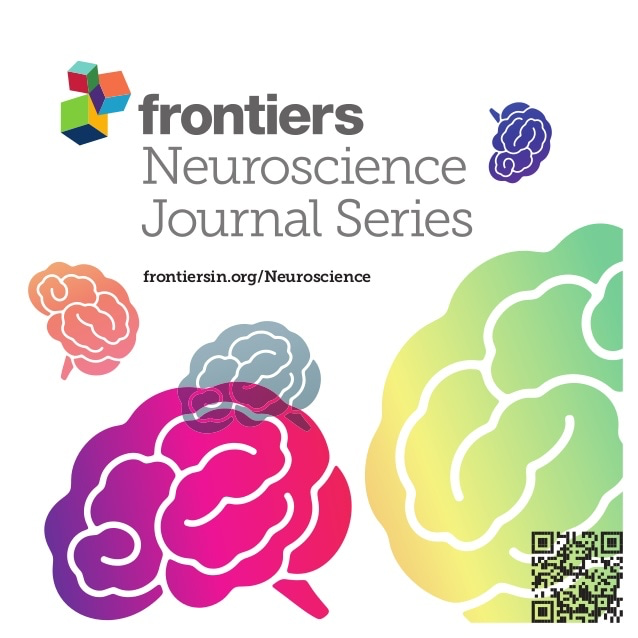
2019 Frontiers in Neuroscience
Gan Mai Da Zao decoction has shown comparable anxiolytic effects to Diazepam and Buspirone in mice, possibly regulated by serotonin and gamma-aminobutyric acid receptors.
Animal Study Anxiety GABA system Gan Mai Da Zao Tang Serotonin
GABA and 5-HT Systems Are Involved in the Anxiolytic Effect of Gan-Mai-Da-Zao Decoction
Chen HS, Gu LJ, Yang YX, Guo JY
Review Articles
Review articles summarise and critically evaluate the current state of research on a specific topic or field by synthesising multiple primary research studies.

Pomegranate (Punica granatum L.) and its phytochemicals as anxiolytic; an underreported effect with therapeutic potential: A systematic review
2023 Dec Brain Research Flores-Bazán T, Betanzos-Cabrera G, Guerrero-Solano JA, Negrete-Díaz JV, German-Ponciano LJ, Olivo-Ramírez D
Systematic Review Anxiety PomegranatePomegranate fruit and its phytochemicals may offer a novel, natural alternative for the treatment of pathological anxiety, with fewer adverse effects than traditional medications.

Suanzaoren Formulae for Insomnia: Updated Clinical Evidence and Possible Mechanisms
2018 Feb 9 Frontiers in Pharmacology Zhou Qi-Hui, Zhou Xiao-Li, Xu Meng-Bei, Jin Ting-Yu, Rong Pei-Qing, Zheng Guo-Qing, et al.
In the present study, the findings demonstrated that Chinese herbal formulae that contains SZR (FSZR) therapy was effective and well tolerated for insomnia through sedative and hypnotic actions primarily mediated by the GABAergic and serotonergic system. Thus, FSZR could be an alternative treatment for insomnia in clinical practice.
Review Article Suan Zao Ren Tang Suan Zao Ren decoctionClinical Trials
Clinical trials are research studies that involve people and are conducted to evaluate the safety and efficacy of new treatments or interventions, such as drugs, medical devices, or behavioural therapies.

Effects of Acupuncture Therapy on Drug-Resistant Fibromyalgia: An Exploratory Single-Arm Nonrandomized Trial
2022 Jun 01 Medical Acupuncture Minakawa Y, Saito S, Matsumoto Y, Oka H, Miki K, Yukioka M, et al.
The combination of conventional electroacupuncture plus electro-scalp acupuncture effectively alleviated pain, improved quality of life (QOL), and led to a reduction in pregabalin dosage requirements in patients with fibromyalgia.
Randomised Controlled Trial Fibromyalgia
Comparison between acupuncture therapy and gabapentin for chronic pain: a pilot study
2021 Jul 29 Acupuncture in Medicine Chen L, Deng H, Houle T, Zhang Y, Ahmed S, Zhang W, et al.
This pilot study suggests that a large-scale clinical study with an adequate sample size would be warranted to compare acupuncture and medication therapy for chronic pain management.
Randomised Controlled Trial Gabapentin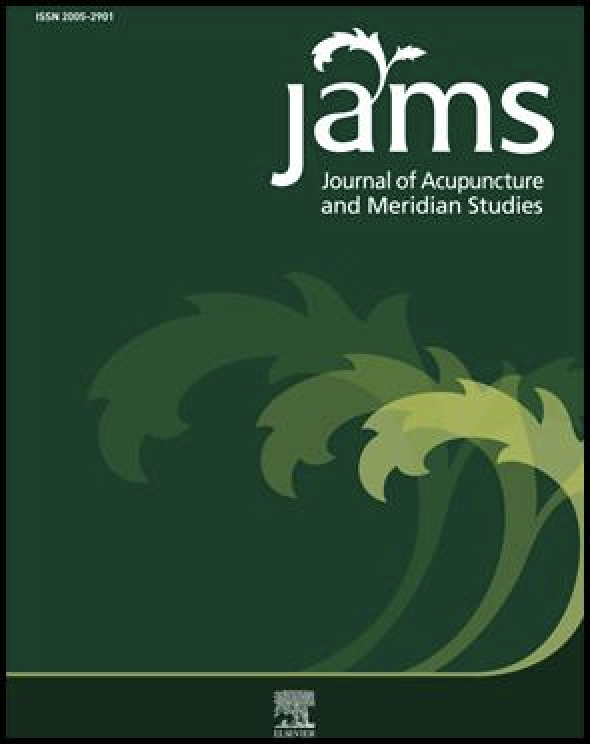
Evaluation of Acupuncture in the Treatment of Restless Legs Syndrome: A Randomized Controlled Trial
2017 Oct Journal of Acupuncture and Meridian Studies Raissi GR, Forogh B, Ahadi T, Ghahramanpoori S, Ghaboussi P, Sajadi S
Randomised Controlled Trial Restless Legs SyndromeThe combination of acupuncture and a low dose of gabapentin (300 mg/d) is clinically effective in treating restless legs syndrome and has an additional therapeutic benefit compared to gabapentin alone.
Study Protocols
Published study protocols are detailed plans that outline the objectives, methodology, statistical analyses, and organisation of a research study that have been made publicly available for others to review and use as a reference.
Presentation Slides

Experimental Study
A blend of jujube seeds, longan fruits, and lettuce leaves significantly increases sleep time in fruit flies and mice.
Bae GY, Ko K, Yang E, Park SS, Suh HJ, Hong KB

Systematic Review
Pomegranate fruit and its phytochemicals may offer a novel, natural alternative for the treatment of pathological anxiety, with fewer adverse effects than traditional medications.
Flores-Bazán T, Betanzos-Cabrera G, Guerrero-Solano JA, Negrete-Díaz JV, German-Ponciano LJ, Olivo-Ramírez D

Experimental Study
The fermented jujube seeds extract significantly enhances sleep by binding to the GABA receptors, thus offers a promising natural alternative for sleep disorders treatment.
Bae GY, Ahn Y, Hong KB, Jung EJ, Suh HJ, Jo K

Experimental Study
Jujube seed extract has been found to primarily reduce anxiety by regulating the GABAergic and serotonergic synapse pathways, specifically modulating GABRA1, HTR1A, and HTR2A.
Chen L, Zhang X, Hu C, Zhang Y, Zhang L, Kan J, Li B, Du J

Animal Study
Gan Mai Da Zao decoction has shown comparable anxiolytic effects to Diazepam and Buspirone in mice, possibly regulated by serotonin and gamma-aminobutyric acid receptors.
Chen HS, Gu LJ, Yang YX, Guo JY

Randomised Controlled Trial
The combination of acupuncture and a low dose of gabapentin (300 mg/d) is clinically effective in treating restless legs syndrome and has an additional therapeutic benefit compared to gabapentin alone.
Raissi GR, Forogh B, Ahadi T, Ghahramanpoori S, Ghaboussi P, Sajadi S
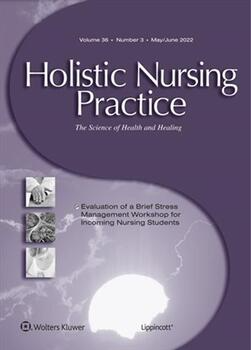
Animal Study
Curcumin's potential anxiolytic and antidepressant impacts do not significantly alter behavior or interact with the benzodiazepine site of the gamma-aminobutyric acid receptor A.
Ceremuga TE, Helmrick K, Kufahl Z, Kelley J, Keller B, Philippe F, Golder J, Padrón G
Executive Summary
Write an executive summary in the form of a blog article on the topic of "Research into Chinese medicine treatment for GABA" summarising the research below and using language that can be easily understood by patients and avoiding medical jargon using a professional and caring tone of voice.
Write an executive summary in the form of a blog article on the topic of "Researched Chinese medicine treatments for GABA" summarising the research below in an objective and easy to understand way, and using language that can be easily understood by patients. Group the article into Chinese medicine treatments first, followed by nutrition and other treatments. Avoid using medical jargon and use a professional and caring tone of voice.
Write me a concise but easy to understand executive summary on the topic of "Chinese medicine treatments for GABA" based on the following research that I will give you. Your summary should be 2 paragraphs long in Australian English spelling and include references to the studies.
A Experimental Study published in 2023 in the journal Foods found that A blend of jujube seeds, longan fruits, and lettuce leaves significantly increases sleep time in fruit flies and mice. In the methodology of this study, behavioral analyses using fruit flies were carried out to find the optimal combination of extracts from Ziziphus jujuba seeds, Dimocarpus longan fruits, and Lactuca sativa leaves. The experiment further tested this mixture's sleep-enhancing effects on a caffeine-induced sleepless model and via neurotransmitter receptor antagonists in fruit flies. Additionally, ICR mice were used to comprehend the potential effect of the extracts on sleep duration. Discussion of the study's outcomes has indicated that the mixed ratio – particularly 4:1:1 – of the three extracts considerably enhances total sleep time both in the fruit flies and the mice. Moreover, the experiment spotted alternations in gene expression related to GABA receptors, pointing to a probable mechanism underlying the promoted sleep effects.
A Systematic Review published in 2023 in the journal Brain Research found that Pomegranate fruit and its phytochemicals may offer a novel, natural alternative for the treatment of pathological anxiety, with fewer adverse effects than traditional medications. Using a systematic review methodology, the researchers explored the potential anxiolytic (or anxiety-reducing) effects of pomegranate (PG) fruit and its natural compounds. Searches were conducted across numerous databases such as PubMed, ScienceDirect, Google Scholar, WorldWide Science, and Web of Science using specific predetermined terms. Only original articles meeting established inclusion criteria were chosen for review. The data collected from these articles provided information on the part and variety of pomegranates used, the species studied, sample size, anxiety model, dose, route and time of administration, reference drug, main results, and associated mechanisms of action. The review of 59 such studies revealed PG as well as compounds it contains - specifically anthocyanins, flavonoids, tannins, organic acids, and xanthonoids - as having potential anxiolytic effects. According to the existing literature, these effects appear to be driven by several molecular mechanisms. These include the inhibition of specific anxiety-linked receptors, activation of certain cellular pathways associated with anxiety reduction and resilience, modulation of inflammatory proteins, and reduction of oxidative stress. The results position pomegranate and its phytochemicals as a potentially new natural option for the treatment of anxiety disorders. This is the first review to focus on the anxiolytic impact of pomegranates.
A Experimental Study published in 2023 in the journal Foods found that The fermented jujube seeds extract significantly enhances sleep by binding to the GABA receptors, thus offers a promising natural alternative for sleep disorders treatment. Methodology: An aqueous extract of jujube seeds (ZW) was fermented, following a starch-removing enzymatic degradation process, to increase its γ-aminobutyric acid (GABA) content, resulting in a fermented product (ZW-FM). The sleep-promoting effect of ZW-FM was evaluated using rodent models; specifically, sleep tests were performed on ICR mice with pentobarbital-induced sleep, while the electroencephalography analysis was undertaken in Sprague Dawley rats. Awakening relief effects of ZW-FM were assessed using a caffeine-induced insomnia model. To understand the mechanism, GABA receptor type A (GABA) antagonists were used. Results: The groups given ZW-FM treatment displayed a longer sleep duration, particularly increased δ-wave time during non-rapid eye movement sleep, and reduced sleep latency. Particularly, the model treated with ZW-FM showed an increase in non-rapid-eye-movement sleep and a reduction in the REM sleep duration, brought about by caffeine treatment. The enhanced sleep induction caused by ZW-FM was hindered by GABA receptor antagonists, thereby validating the involvement of a GABAergic mechanism in promoting sleep.
A Experimental Study published in 2020 in the journal Frontiers in Pharmacology found that Jujube seed extract has been found to primarily reduce anxiety by regulating the GABAergic and serotonergic synapse pathways, specifically modulating GABRA1, HTR1A, and HTR2A. The research relied on a system biology method supported by Ultra Performance Liquid Chromatography Quadrupole Time of Flight Mass Spectrometry (UPLC-Q-TOF/MS) and Real-Time Quantitative Polymerase Chain Reaction (RT-qPCR). Initially, 35 phytochemicals were identified from the Jujube seed extract, which related to 71 anxiolytic targets. Further investigations, including protein-protein interaction, gene cluster, Gene Ontology, and Kyoto Encyclopedia of Genes and Genomes (KEGG) pathways analyses, were conducted to identify the anxiolytic mechanisms of the extract. The results highlighted that the main anxiolytic mechanisms of the Jujube seed extract were linked to the regulation of serotonergic and GABAergic synapse pathways. The extract's impact on the mRNA expressions of multiple gamma-aminobutyric acid type A (GABA) and serotonin (5-HT) receptors subtypes was verified in human neuroblastoma cells. Surprisingly, the extract (250 μg/mL) not only amplified the mRNA level of GABRA1 and GABRA3 alongside HTR1A, HTR2A, and HTR2B in untreated cells but also suppressed the overexpressed mRNA of GABRA1, GABRA2, HTR1A, and HTR2A in stress-induced cells.
A Animal Study published in 2019 in the journal Frontiers in Neuroscience found that Gan Mai Da Zao decoction has shown comparable anxiolytic effects to Diazepam and Buspirone in mice, possibly regulated by serotonin and gamma-aminobutyric acid receptors. The mice were given the Gan-Mai-Da-Zao (GMDZ) decoction orally at different concentrations for a week, with Diazepam and Buspirone serving as positive controls. Anxiety-level testing was conducted using a combination of the elevated plus-maze, light/dark box, marble burying, open field, and rota-rod tests, providing a comprehensive assessment of the decoction's effects on mice. Furthermore, the anxiolytic effects that GMDZ induced in the mice were challenged by the application of Flumazenil, a gamma-aminobutyric acid-A receptor antagonist, and WAY-100635, a serotonin-1A receptor antagonist. They found that the effects were successfully inhibited, indicating that the mechanism of action of GMDZ could be linked to both the serotonin and gamma-aminobutyric acid receptors in the nervous system, thereby reducing anxiety-like behavior in mice.
A Randomised Controlled Trial published in 2017 in the journal Journal of Acupuncture and Meridian Studies found that The combination of acupuncture and a low dose of gabapentin (300 mg/d) is clinically effective in treating restless legs syndrome and has an additional therapeutic benefit compared to gabapentin alone. The study aimed to investigate the effectiveness of medical acupuncture as an additional treatment to gabapentin for controlling restless legs syndrome (RLS) symptoms. Forty-six RLS patients were randomly assigned to either receive 10 sessions of acupuncture plus gabapentin or gabapentin alone over four weeks, with their symptoms assessed before, immediately after, and eight weeks after treatment. Results showed that the experimental group had significantly better improvements in VAS, IRLSRS, and PSQI compared to the control group. After the treatment, both groups had significant improvements in VAS and IRLSRS, while only the experimental group had a significant improvement in PSQI.
A Animal Study published in 2017 in the journal Holistic Nursing Practice found that Curcumin's potential anxiolytic and antidepressant impacts do not significantly alter behavior or interact with the benzodiazepine site of the gamma-aminobutyric acid receptor A. In this study, a prospective, between-subjects group design was employed. The subjects were 55 male Sprague-Dawley rats randomly split into five groups, each given different intraperitoneal injections: a control group, curcumin, curcumin with flumazenil, midazolam alone, and midazolam with curcumin. Behavioral observations were conducted with the aid of the elevated plus maze, open field test, and forced swim tests. A two-tail multivariate analysis of variance was deployed for data analysis. The results showed that, according to the behavioral tests, curcumin did not generate any notable signs of anxiety-relieving or mood-lifting effects. It was also noticed that curcumin didn't show any interactive tendencies with the GABAA receptor's benzodiazepine site. The team therefore concluded that curcumin didn't produce any significant outcomes on these aspects of mental health modulation as was purposed in the initial hypothesis.
Moderation Tools
Topic
Sign In
Users not signed in are limited to viewing the 5 most recent items of content.